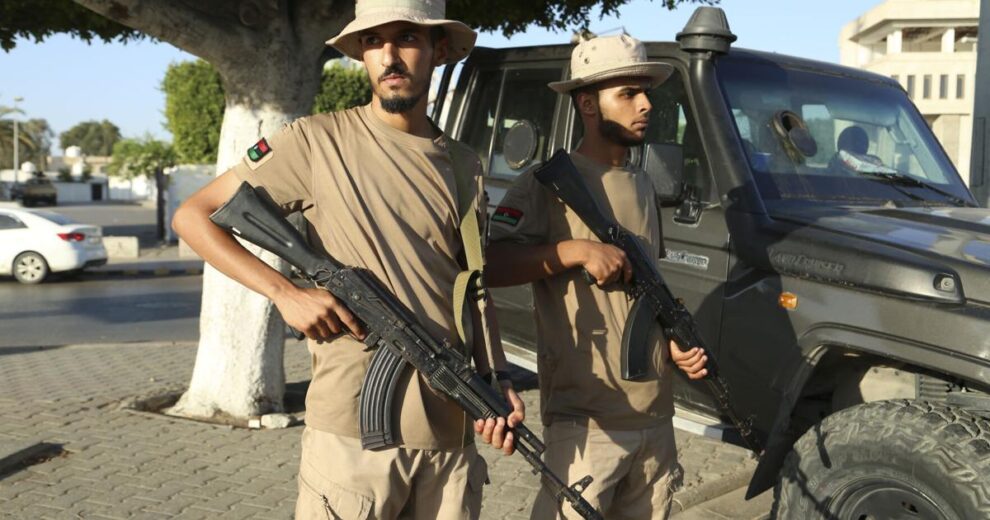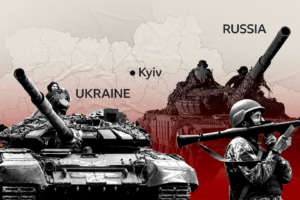Libya’s stability is at greater risk following recent militia clashes and amid turmoil in neighboring Sudan and Niger that could spill over into the oil-rich North African nation, the country’s U.N. special envoy said Tuesday.
Abdoulaye Bathily told the U.N. Security Council that political divisions in Libya “are fraught with risks of violence and disintegration for countries.” He urged the country’s rival factions to resolve all election-related issues so that long-delayed voting can take place.
“It is fundamental to restore Libya’s stability, to preserve regional security,” he said. “Without an inclusive political agreement that paves the way for peaceful, inclusive and transparent elections across Libya, the situation will worsen and cause further suffering to the Libyan people.”
Libya plunged into chaos after a NATO-backed uprising toppled and killed longtime dictator Moammar Gadhafi in 2011. The country split in the chaos that followed, with rival administrations in the east and west backed by rogue militias and foreign governments.
The country’s current political crisis stems from the failure to hold elections as scheduled on Dec. 24, 2021, and the refusal of Prime Minister Abdul Hamid Dbeibah — who led a transitional government in the capital of Tripoli — to step down. In response, Libya’s east-based parliament appointed a rival prime minister, Fathy Bashagha, but suspended him in May. The powerful commander Khalifa Hifter continues to hold sway in the east.
Bathily expressed hope that discussions on amending draft election laws to tackle loopholes, inconsistencies and technical difficulties can be concluded in the coming weeks. The U.N. is working with all parties to also have a comprehensive political agreement on issues related to a new government and to ensure security and a level playing field for all candidates in the elections.
“I am optimistic,” Bathily told reporters afterward. “I cannot at this stage put a date. Of course, we have envisioned the election to take place in 2023 but what is important is that this agreement can become a reality.”
He told the council that the fragile stability in Tripoli was shattered Aug. 14-15 by fierce armed clashes between rival militias in the city, which reportedly killed at least 55 people and injured over 100, including an unspecified number of civilians.
He also pointed to fighting this month between “armed elements” based in southern Libya and government troops in Chad’s neighboring Tibesti region as another reason that political divisions in Libya “are fraught with risks of violence and disintegration for countries.”
U.S. Ambassador Linda Thomas-Greenfield condemned the fighting between militias in Tripoli and said instability in Sudan and Niger could spiral into wider violence. She said the Libyan people are ready for compromise and stability.
She also said the United States will continue to “shine a spotlight on the Wagner Group’s pernicious impact in Libya and across Africa.”
Noting the Russian mercenary group operates in Mali, Burkina Faso, Niger and Sudan, she said its leadership “has made no secret of its ambition to gain a further foothold in Africa, and its disregard for Libya’s territorial integrity.”
Bathily confirmed that Wagner mercenaries are in Libya but said the U.N. has no information on the size of its presence or equipment.
In late March, he said, after visiting Sudan, Chad and Niger he was optimistic they would withdraw their fighters and mercenaries from Libya. But two weeks later, he noted, fighting erupted between rival generals in Sudan and last month the head of Niger’s presidential guard ousted the president.
Bathily said Libya’s border with Sudan has been open to armed groups, mercenaries and gang leaders dealing in illegal migration, illegal mining, drug trafficking and other criminal activities. But so far, he said, there hasn’t been a big influx of Sudanese refugees to Libya.
As for Niger, Bathily said, like other countries in Africa’s Sahel region, it has been affected by the crisis in Libya. Some Nigeriens have joined mercenaries in Libya, and armed elements in Niger are active along the border.
If the Niger army breaks up, Bathily said, “the destabilization of Niger will undoubtedly have consequences on Libya, and vice versa.”
Source : AP News





Add Comment